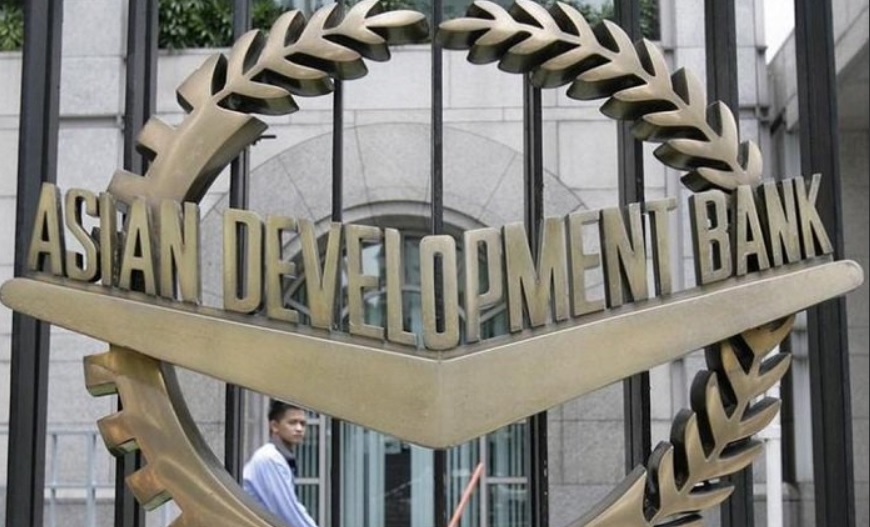ADB President and Philippine Finance Secretary meet to discuss cooperation
ADB’s operations in the Philippines are growing significantly, with a focus on transport, flood control, livable cities, local economic development, and investing in people.

- Country:
- Philippines
Asian Development Bank (ADB) President Mr. Takehiko Nakao and Philippine Finance Secretary Mr. Carlos Dominguez III met today and discussed cooperation in 2018, including four loans expected to be signed by the end of the year worth in total $1.38 billion, the successful hosting of the ADB Annual Meeting in Manila in May, and increasing ADB assistance going forward.
“ADB is committed to supporting the Philippine government as it pursues more inclusive growth across the archipelago. Boosting the government’s effort to build up infrastructure and expand financial services in underserved areas of the country will help reduce income inequality in the country, which has persisted despite sustained strong economic growth in recent years,” said Mr Nakao.
ADB’s operations in the Philippines are growing significantly, with a focus on transport, flood control, livable cities, local economic development, and investing in people. Total commitments will increase to $7.4 billion during the three-year period 2019-2021, or about $2.5 billion annually, which is more than double ADB’s annual assistance from 2011-2017.
One of the loans ADB is considering in 2019 is additional financing for the technical assistance (TA) loan Infrastructure Preparation and Innovation Facility, with $100 million already committed in 2017. These TA loans will help prepare well-designed projects under the government’s “Build, Build, Build” program, which seeks to raise public spending on infrastructure to 7.4% of the gross domestic product by 2022 from 5.1% in 2016.
“It is encouraging that the Philippine economy is continuing on a sustained, high growth rate and the robust banking sector is helping build resilience amidst global volatility,” said Mr Nakao. ADB expects a growth rate of 6.4% this year and 6.7% in 2019. Inflation shows initial signs of decline, thanks to proactive measures by the government and prudent monetary policies. Mr Nakao commended the Philippine government’s efforts to raise revenue and rationalize tax systems, which ADB is supporting through technical assistance.
This year, the first signed loan in January was a Mindanao road sector project worth $380 million. This is ADB’s biggest infrastructure investment in the island region, which seeks to improve 280km of national roads and bridges in Mindanao. This project is innovative, with strong measures for governance and transparency. All project roads will be geotagged with information accessible on the internet so the public can monitor road investment projects throughout the project lifecycle, including procurement and construction.
The Expanding Private Participation in Infrastructure Program, policy-based lending worth $300 million, was signed in August. The program supports government reforms to strengthen financial support to PPPs, expand the pipeline of projects, and strengthen the legal and regulatory frameworks for PPPs.
The Inclusive Finance Development Program, another policy-based lending worth $300 million, was signed in October. It aims to increase financial inclusion of the poorest 40 per cent of the adult population. The program will support government reforms to expand financial products and services to the poor, promote financial literacy, and invest in support networks and infrastructures such as the national retail payment system and the new national identification system.
ADB expects to sign upon Board of Director's approval later this year the Emergency Assistance for the Reconstruction and Recovery of Marawi, amounting to $400 million in loans and $8 million in grants. The loan will finance projects under the Bangon Marawi Comprehensive Rehabilitation and Reconstruction Plan covering infrastructure, and the restoration of public services and livelihoods.
In May this year, the Philippines hosted the very successful ADB 51st Annual Meeting, with more than 4,000 participants. Mr Nakao reiterated his deepest gratitude to the Government of the Philippines and its people for the warm hospitality and excellent arrangements for the Annual Meeting.
Today’s meeting was attended by ADB Alternate Director Mr Paul Dominguez, ADB Deputy Director General for Southeast Asia Ms F. Cleo Kawawaki, ADB Country Director for the Philippines Mr Kelly Bird, and high-level representatives of the Department of Finance, National Economic and Development Authority, Securities and Exchange Commission, and the Bangko Sentral ng Pilipinas.
ADB, based in Manila, is dedicated to reducing poverty in Asia and the Pacific through inclusive economic growth, environmentally sustainable growth, and regional integration. Established in 1966, it is owned by 67 members—48 from the region. In 2017, ADB operations totalled $32.2 billion, including $11.9 billion in co-financing.










